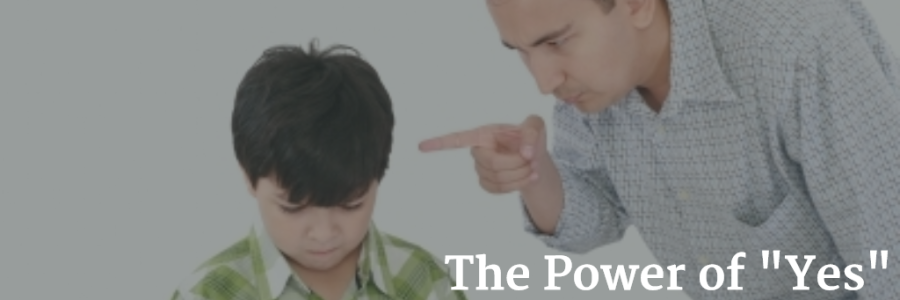
I’ve done several mindfulness exercises with our oldest son in pursuit of self awareness and emotional regulation.He’s got a background of early childhood trauma, and often finds regulating himself to be very difficult. They’ve been so beneficial, he’s even asked to do them on occasion
One Saturday when he was 8 I discussed with him doing an experiment from Parenting from the Inside Out by Dan Siegel. First we sat and closed our eyes and breathed slowly and discussed how our bodies felt. Then I asked him to keep paying attention to how his body felt while I said a word slowly and calmly 5 times: “No.”
He started visibly shaking and after the 4th “No” (which, remember, was “no” to nothing, just saying the word calmly and clearly), he opened his eyes and glared at me angrily. If I kept going he may well have attacked me. His body felt terrible. He was ready to fight.
Then we did it again with me saying “Yes” 5 times – same tone of voice, same volume, same speed. His anger left, the visible shaking disappeared, and he couldn’t stop the giant smile that forced itself onto his face. His body felt great.
Sometimes we parents tend to say “no, no No NO!” – but by that 4th “No”, this guy’s body is probably shaking and he’s in fight mode, just because of the word, and communication is then impossible.
It can be exhausting trying to outnumber Nos with Yeses with a kid whose past-times include patterns of really bad behavior, but it’s worth the effort. A plug for Parenting from the Inside Out and No Drama Discipline by Dan Siegel – the strategies he teaches take a lot more effort up front, but have a significant payoff afterward. My wife has noticed the ways I’ve changed my interactions with our kids, and has remarked several times of the vast improvement in the interaction and the results.
I highly recommend these books. They draws significantly from brain science, and isn’t just some theoretical approach to parenting and discipline.
One note about Parenting from the Inside Out – you’ve got to make it all the way through: the first half is about how one’s own childhood experiences can screw up relationship the next time you’re in a parent-child relationship, this time as the parent (and I felt like a terrible dad during some parts of it). The real strategies on how to heal one’s self and relationships with the kid(s) is in the second half.
I’ve read several reviews that people started with the 2nd half, then read the first. I listened to the books via Audible, and re-listening to them on my commute home from work is a really great way to gear up for a very positive reunion with the kids who have often been through really tough days at school.
